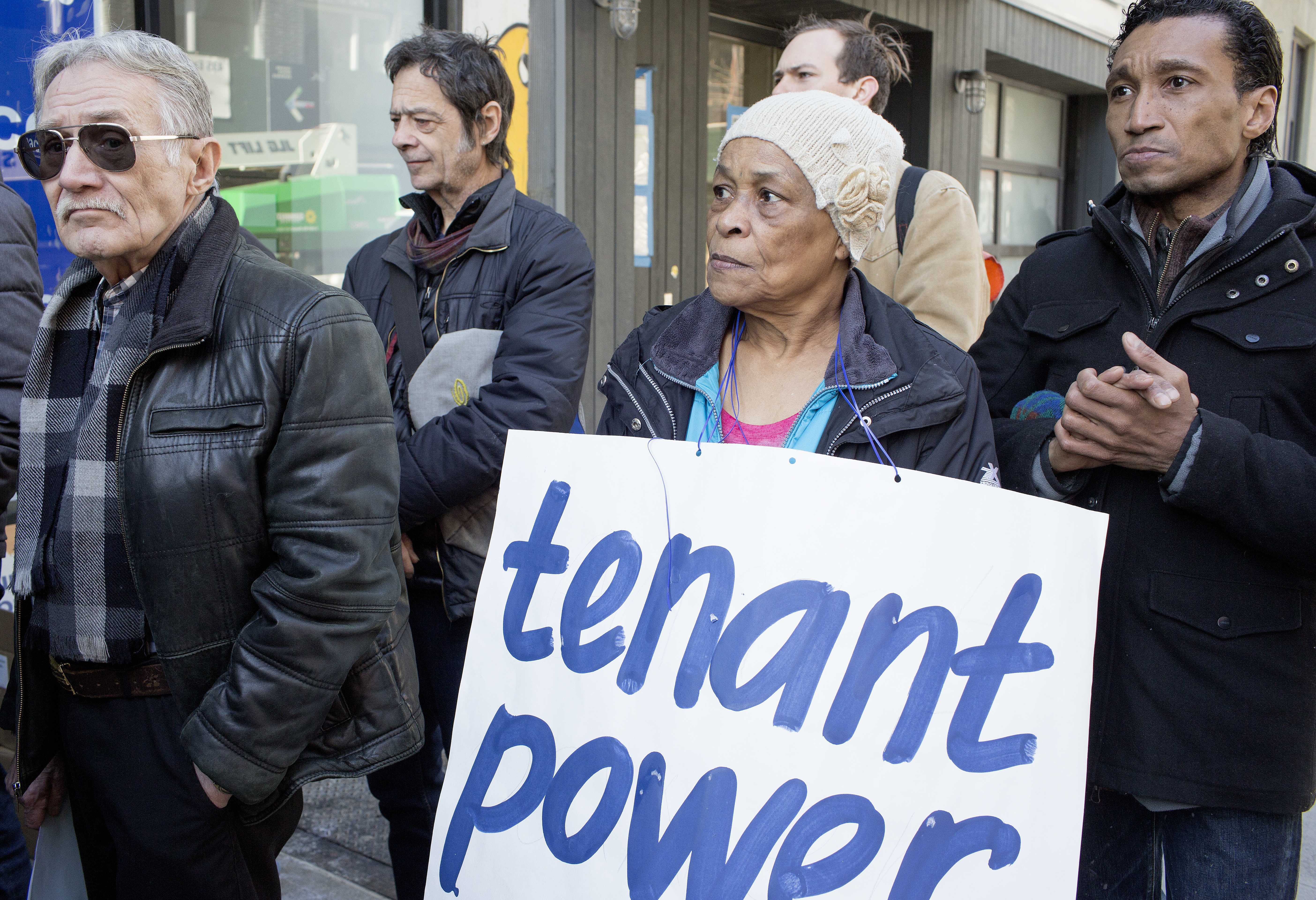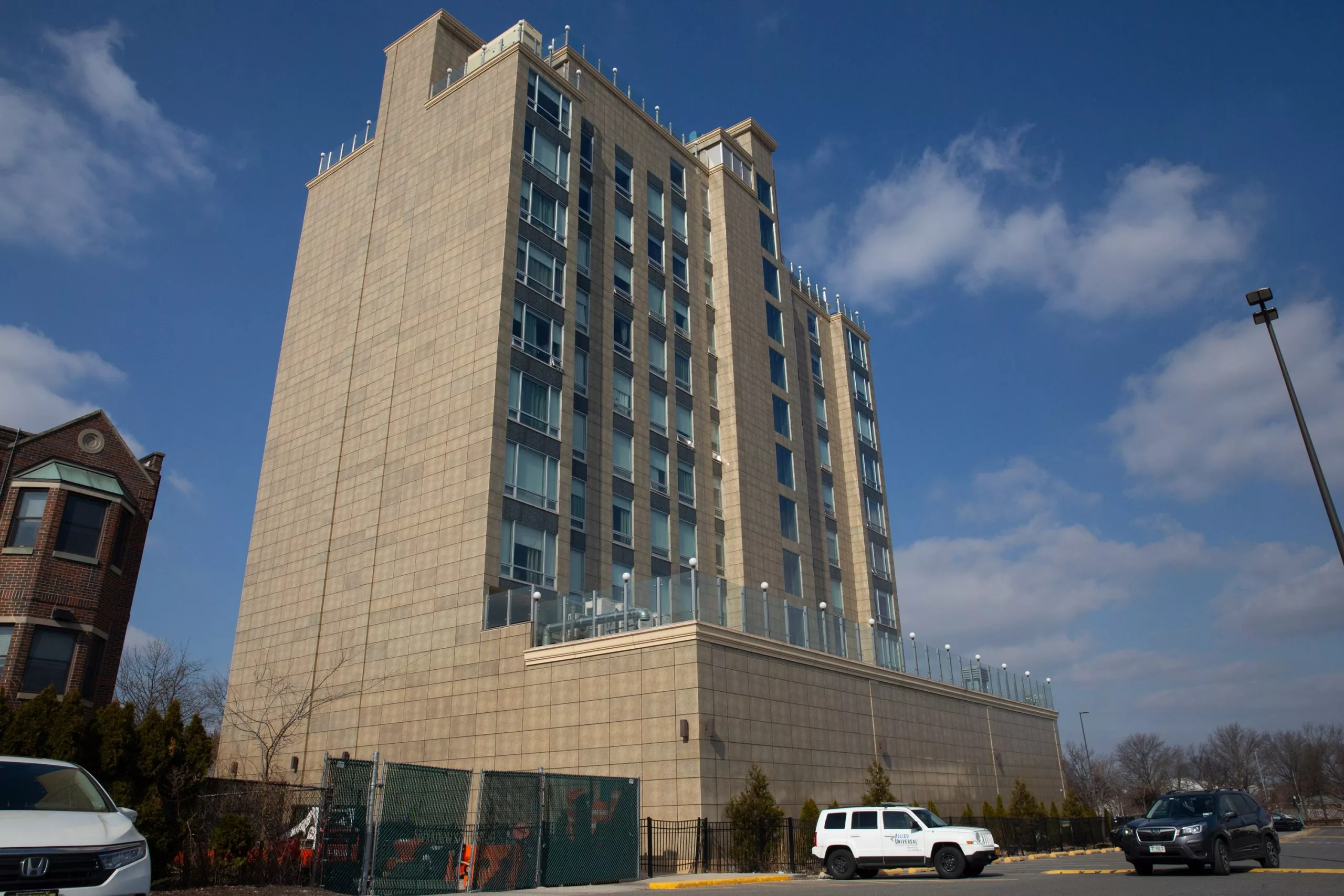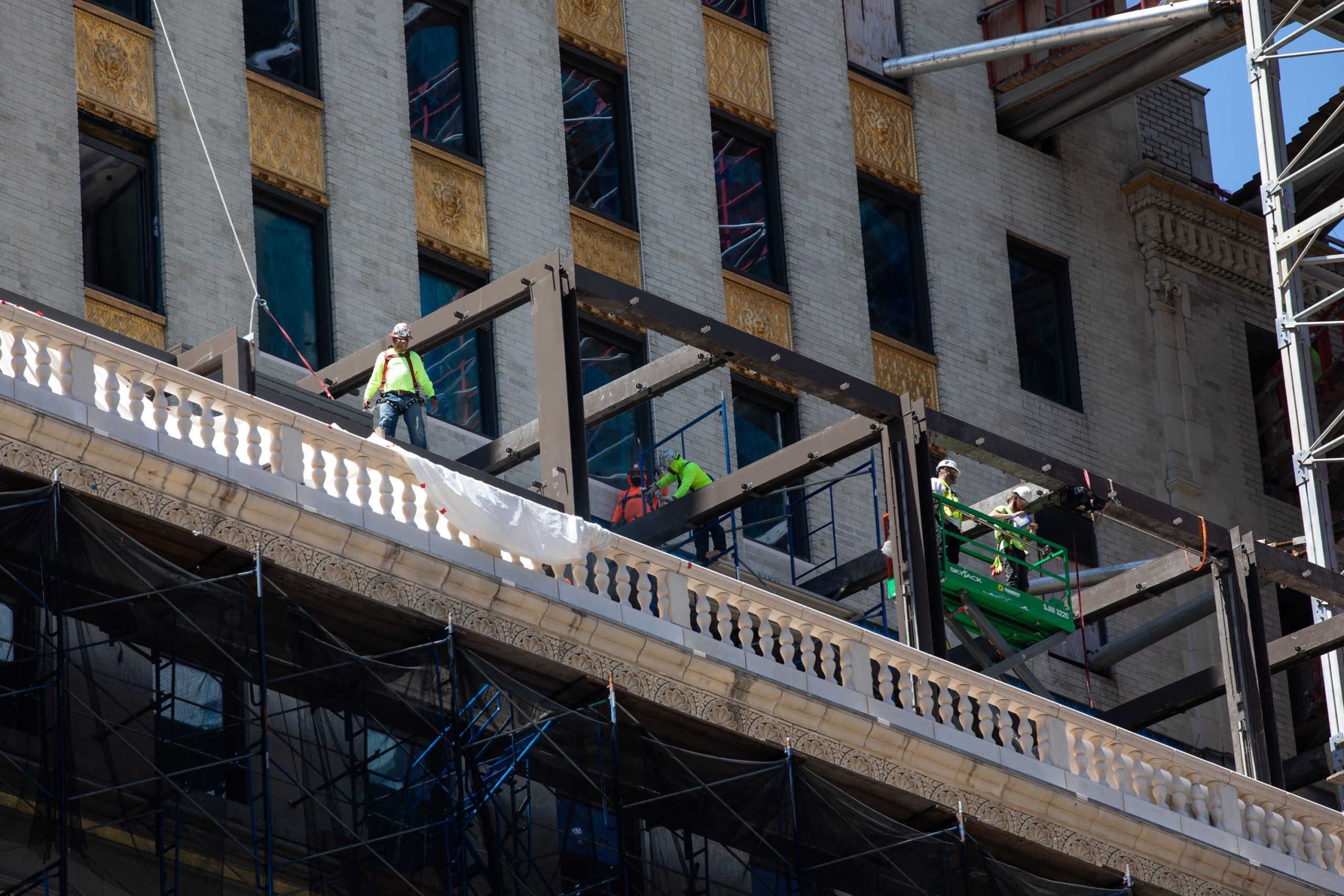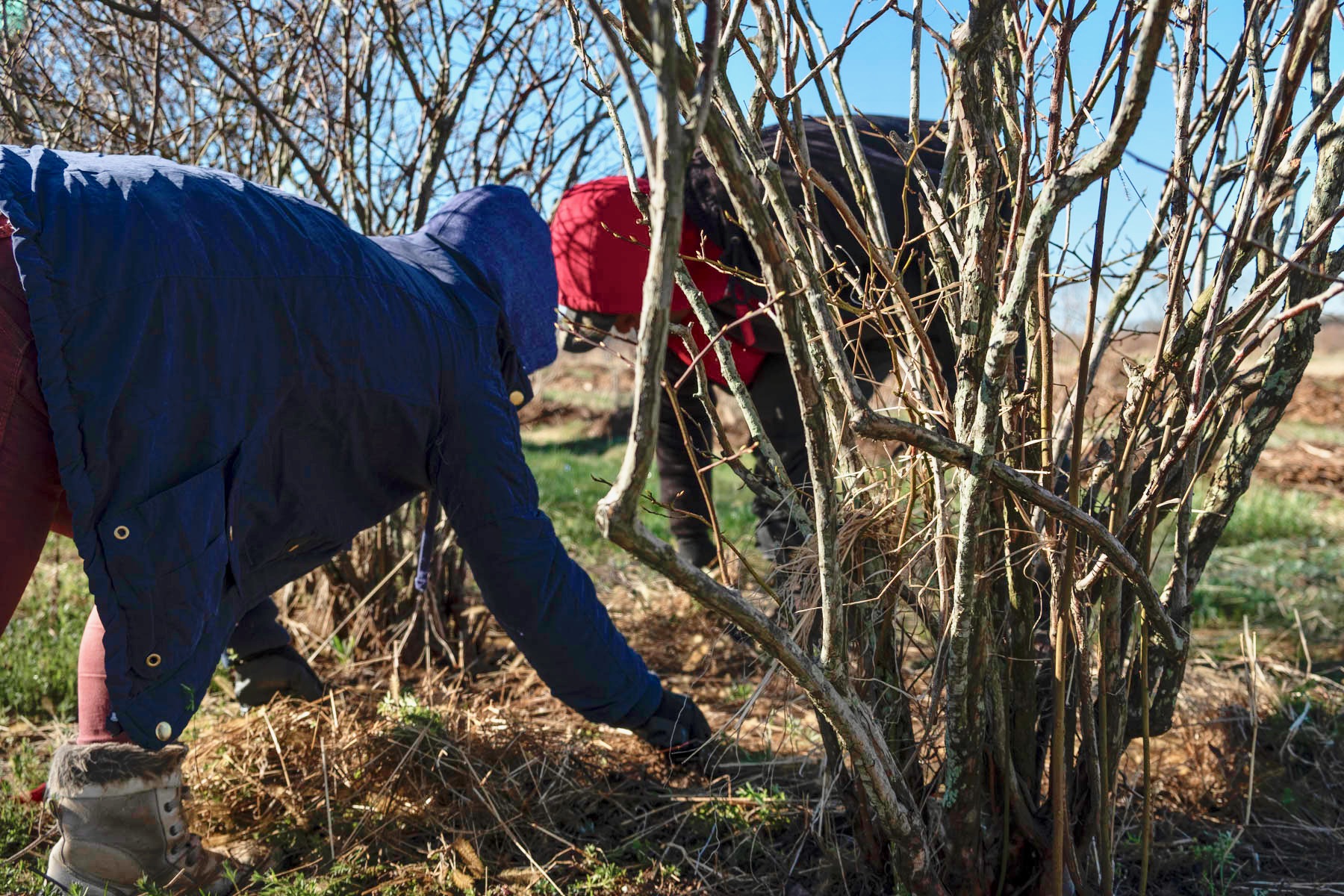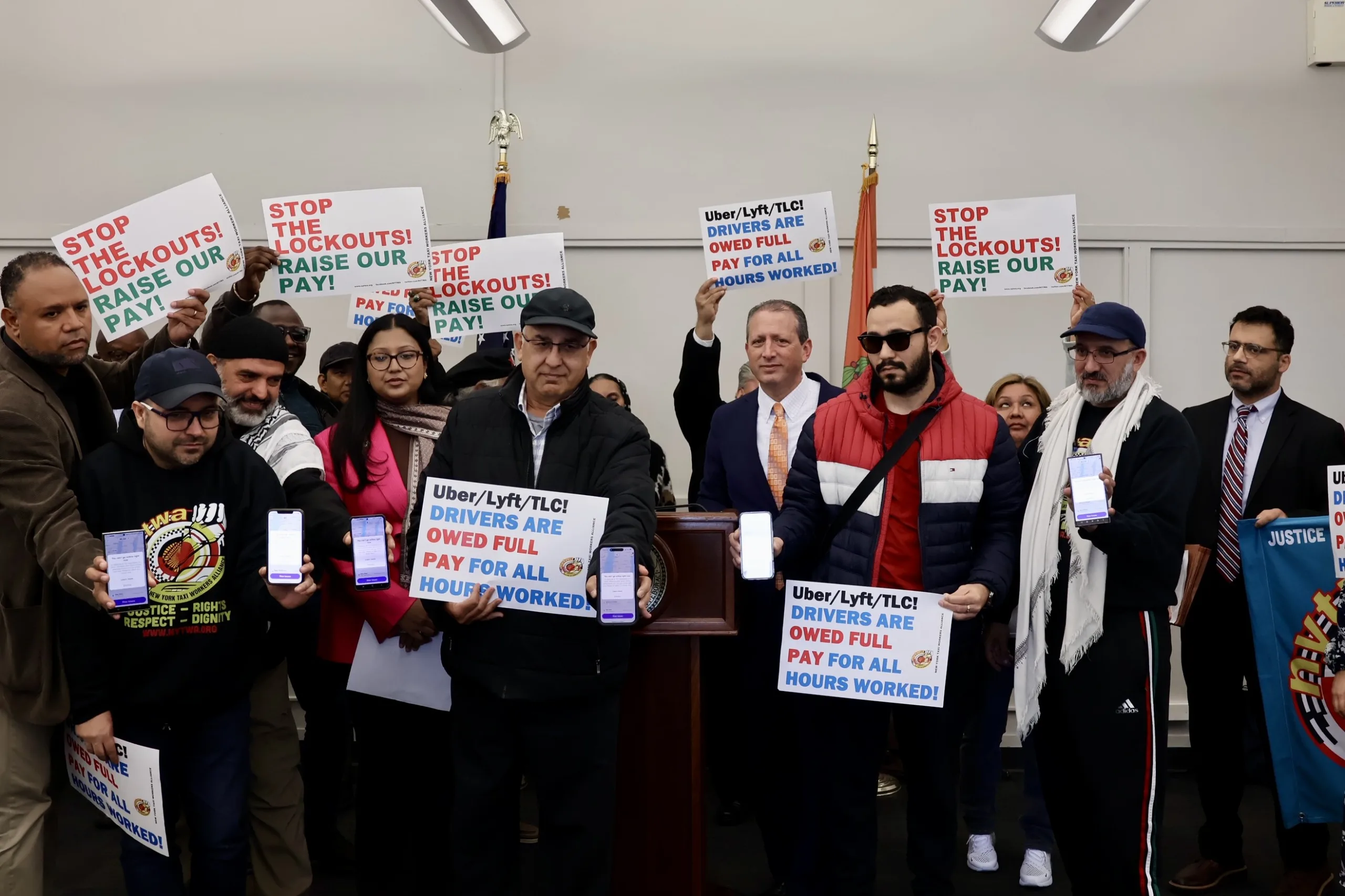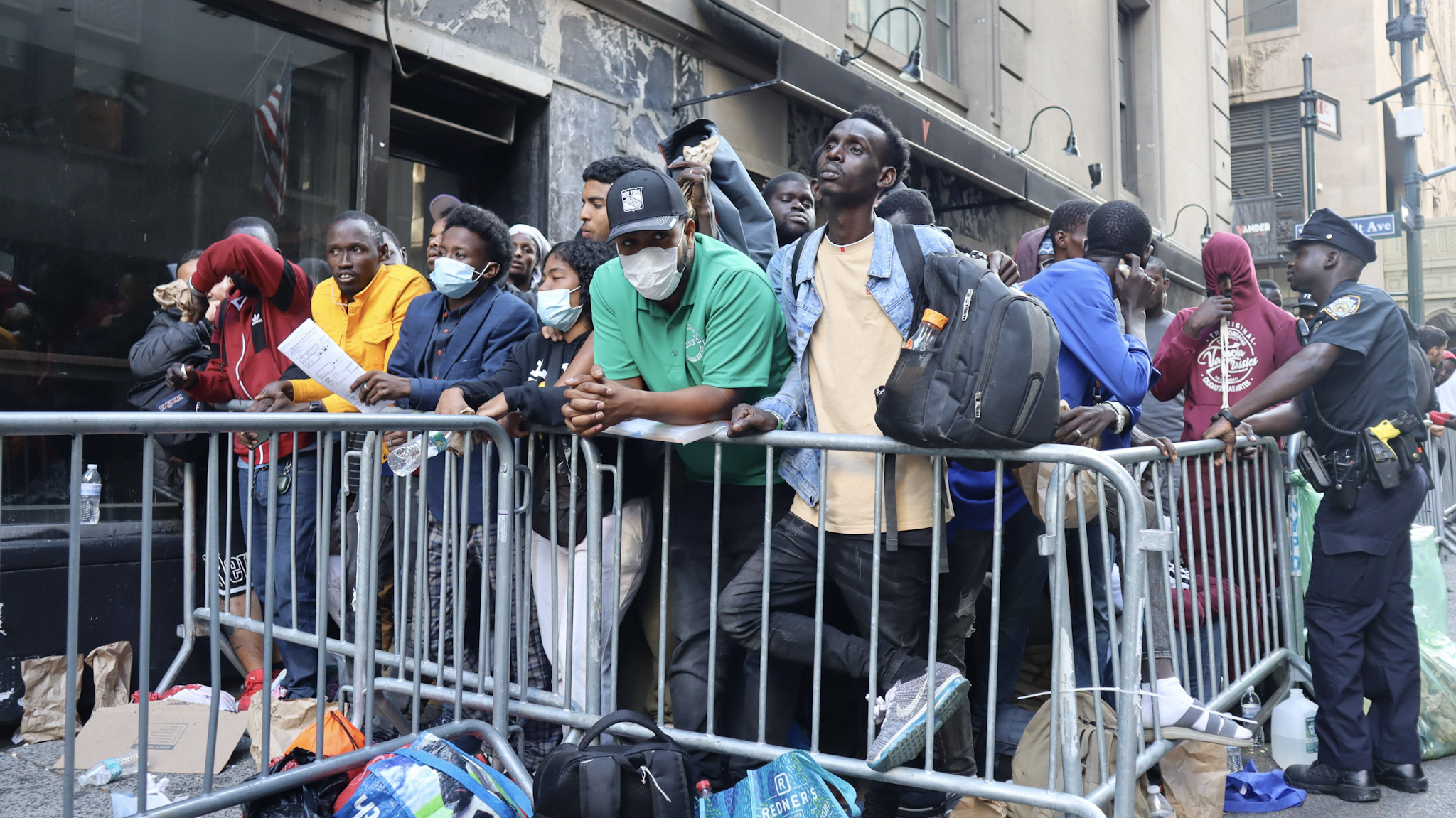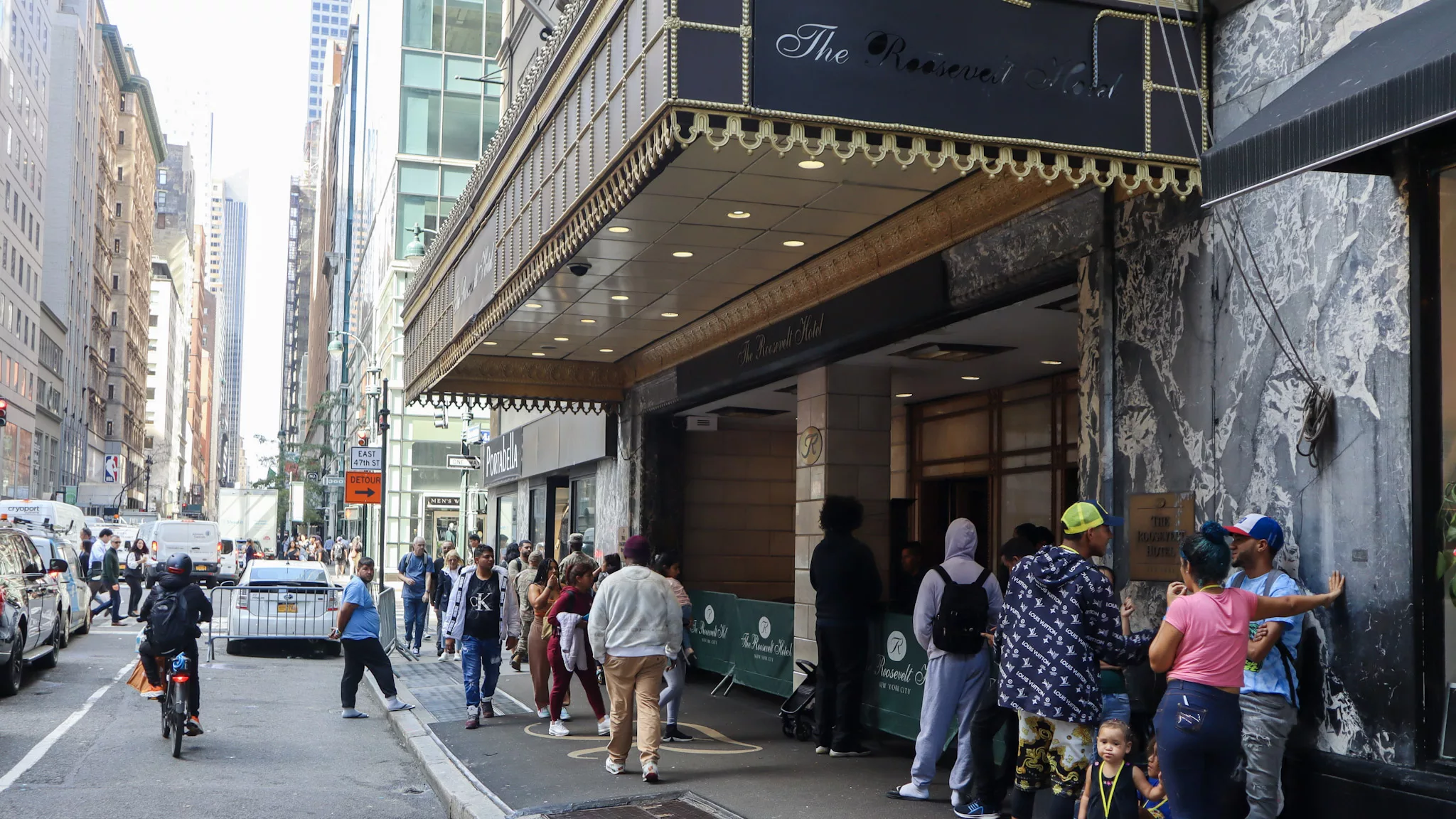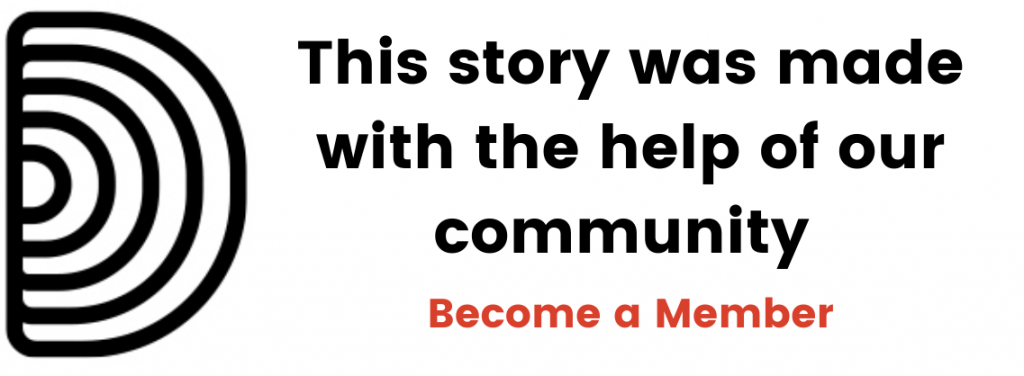
On a recent June afternoon, Sonia Pérez passed her cellphone to her teenage daughter. It was her landlord.
Pérez, a street food vendor originally from Morelos, Mexico already knew why her landlord was calling. As of June 1, Pérez owed $3,315.12 — four months of rent dating back to March — according to a note her landlord sent her, which Documented reviewed.
Pérez does not speak English so her 16-year-old daughter is usually the designated translator when her landlord calls.
Through her daughter, Pérez, 49, a diabetic single mother of three who stopped selling food in her neighborhood in mid-March when the coronavirus ravaged the city, promised her landlord that she would begin paying her de ho helped her with household expenses, lost his battle against Covid-19 and died in mid April.
“But why don’t you apply for government aid?” her landlord insisted. Pérez, who is not eligible for government aid because she is undocumented, said she chose not to answer the question. Her landlord told her that she would take “action against her,” Pérez recounted.
“Tell her that if she wants to take me to court that’s okay,” Pérez, who has lived in the two-bedroom apartment in Bushwick since 1999, told her daughter. “See you in court.”
The Tenant Safe Harbor Act: One more extension to the state’s eviction protection.
Until June 20, Pérez’s landlord would have been unable to take her to housing court. An eviction moratorium signed by Governor Andrew M. Cuomo initially put a hold on all residential and commercial eviction cases and prevented landlords from filing new cases for 90 days.
That measure was later extended until at least Aug. 20, when the governor signed another eviction moratorium, which came with two major requirements: only tenants who could prove that they had suffered “financial hardship” because of Covid-19 or who were eligible for unemployment were protected from eviction. Last week, after much criticism from housing advocates and attorneys, Gov. Cuomo once again changed the rules after signing the Safe Harbor Tenant Act.
Now, New Yorkers who are behind on rent during the “Covid-19 covered period” (from March 7 until the state’s emergency order is lifted) and are able to prove they have faced “financial hardship during Covid-19,” are protected from eviction. But that does not mean Pérez’s landlord could not bring her case to housing court once the courts open for remote hearings, and it does little to help the thousands of out-of-work New Yorkers who will owe thousands of dollars in back rent when the moratorium is finally lifted.
Despite the new law, some landlords continue to harass tenants.
When the pandemic began, undocumented tenants like Pérez suddenly found themselves without a job and with no financial assistance in sight. Soon, several tenants told Documented, their landlords began threatening them to pay back rent.
Around Easter, an undocumented woman who has lived in the same Sunset Park apartment for about 10 years, started waking up at odd hours of the night. Her landlord, who lives in the apartment above hers, was playing loud music and stomping on her ceiling on purpose, recounted her attorney Genesis Miranda with Make the Road New York.
When the woman, who had recently lost her job as a house cleaner amid the pandemic and by then owed two months of rent, sent her landlord text messages requesting he stop, he replied: “Múdese pinche rata ilegal. Vesos.” (“Move out illegal rat. Kisses.”) But this was only the beginning, Miranda told Documented. Days later, the woman reported that on two separate occasions, the landlord threw unidentified objects at her windows, cracking one of them.
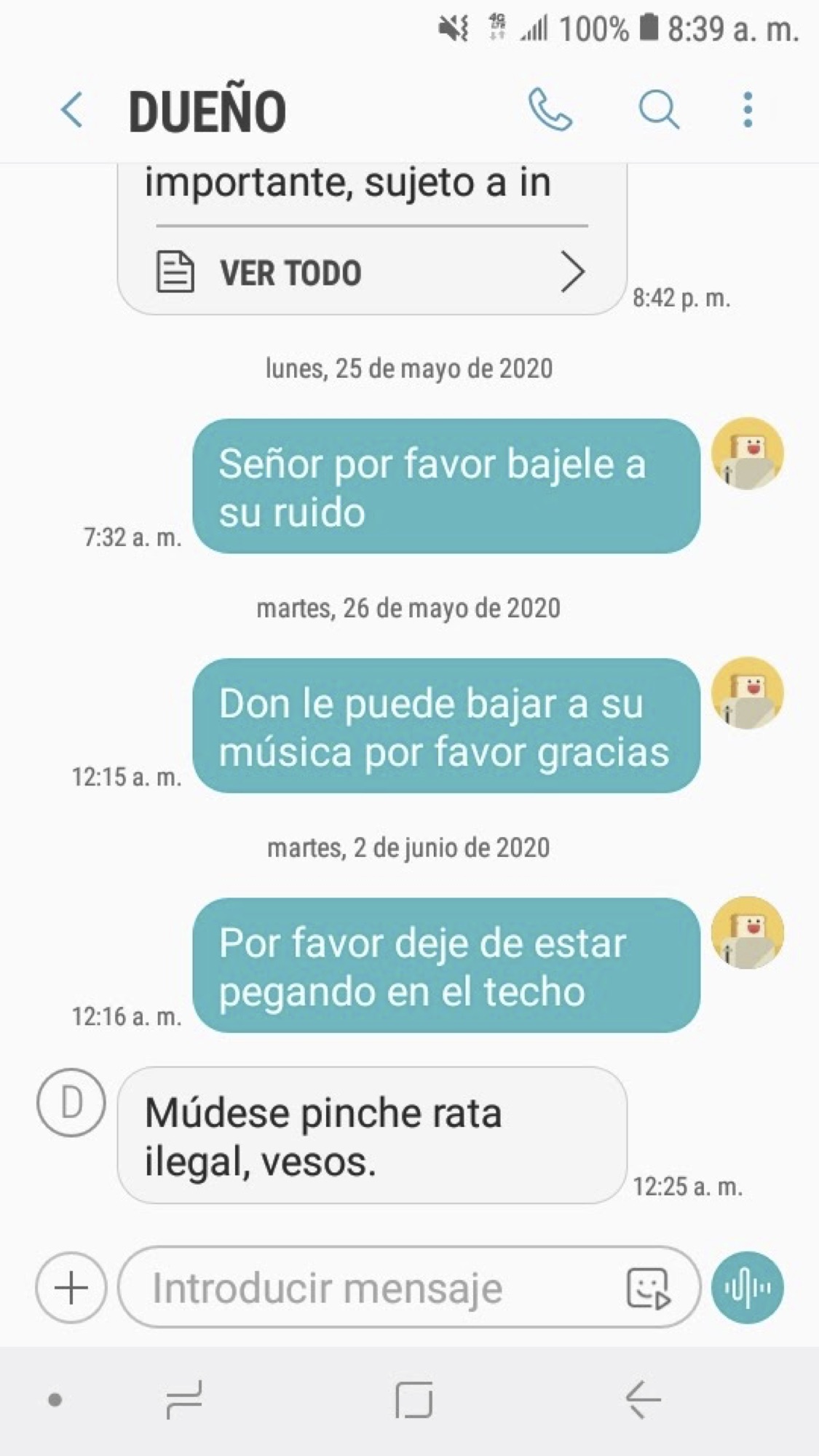
In an attempt to mediate the conflict, Miranda called the landlord. It was fruitless. “His attitude was very much: ‘She hasn’t paid my rent.’ I believe he called her an ‘illegal’ when we were on the phone and that he is allowed to play music.” Miranda said.
Miranda has filed a discrimination and harassment complaint in housing court. The case is ongoing.
Another woman in Woodside, Queens who is behind on four months of rent after her and her husband lost their jobs during the pandemic, reported that another family who shares the three-bedroom apartment with her, is preventing her from using the kitchen unless she pays what she owes, her attorney Aura Zuniga said.
“They put a camera facing the kitchen to spy [on] her,” Zuniga told Documented. The family also put a chair in front of the stove and placed utensils all over the kitchen to discourage the woman from cooking, Zuniga added.
“She is definitely nervous,” Zuniga said. “We’ve talked about what happens next if they want to evict her.” Under the current eviction moratorium, the woman’s landlord or her roommates could file a holdover case in court. Because she does not have a formal lease, Zuniga said, her landlord or roommates can take her to court alleging any issues unrelated to nonpayment.
“The law that just passed, it doesn’t help her,” Zuniga said. “To start a holdover case, you don’t need a reason…Undocumented tenants are going to have an extremely difficult time.”
Even in a case like Pérez’s, where her landlord twice asked why she didn’t apply for government financial aid to pay rent, immigrants may also be put at risk of unintentionally disclosing their immigration status by remaining silent or deliberately divulging their status in an effort to explain their financial situation, attorneys and tenants advocates added.
New bill brings stronger eviction protections, but fewer for undocumented tenants
If taken to court, residential tenants like Pérez would have to prove that their finances have been adversely affected amid the pandemic by presenting documentation. The Safe Harbor Act suggests judges could consider factors like the tenants’ income prior to Covid-19 and during the Covi-19 covered period, liquid assets, among others.
Several housing attorneys and advocates told Documented they worry that the Safe Harbor Law could still leave undocumented tenants—who often get paid in cash and many times do not have formal rental agreements—as the most vulnerable tenants in the state.
“For undocumented immigrants in general it’s more difficult to prove these things because a lot of them are paid in cash and they don’t have documentation of their income as much as someone who has papers and works on the books and gets his W-2 and a pay stub,” said Jennie Stephens-Romero, a supervising attorney with Make the Road New York.
The new law only covers nonpayment cases. Residential tenants who owe rent and do not have a formal lease with their landlord could still face evictions if sued for a holdover case as of August 6, which is essentially any case that does not involve nonpayment of rent.
“If there’s no restriction on holdovers and holdover cases can lead to eviction, undocumented tenants are going to be at greater risk because they are the ones who don’t live in long-term tenancies, they are the ones who don’t have leases,” said Sateesh Nori, director of the Legal Aid’s Queens Housing Office.
The new law puts a hold on evictions until New York’s state of emergency is lifted but it does not prohibit a judge from issuing an order to collect rent. For example, a judge could rule a landlord can begin collecting rent by deducting payments from the tenant’s bank account.
Senator Brad Hoyman, the main sponsor of the Safe Tenant Harbor Act, told Documented in an email that all tenants facing financial hardship during the Covid-19 period are protected under the new law.
“All financially struggling New Yorkers, regardless of their immigration status, are protected by Tenant Safe Harbor Act,” Sen. Hoyman said. “The law expands on the Governor’s eviction moratorium by preventing evictions for tenants who experienced financial hardship during the COVID-19 crisis; there’s no need for a tenant to prove their hardship was specifically due to COVID-19.”
The bill provides some factors judges could consider to determine whether a tenant is covered under these protections,“though no single factor is determinative,” the senator added.
“Among the factors listed in the bill are the tenant’s income prior to and during the COVID-19 period and their liquid assets,” the senator said in an email. ”Undocumented immigrants could provide documentation showing financial hardship through those factors without indicating their immigration status.”
Stephens-Romero, the supervising attorney with Make the Road’s housing team, believes there’s an argument that the Safe Tenant Harbor Act comes with fewer protections for tenants. But Stephens-Romero, and other attorneys, added the new law outlines clearer criteria to qualify for its protection and prevents tenants from disclosing their financial situation and personal records before heading to court.
“Before, there was a sense that maybe the tenant would have to prove their income to their landlord and that is not a good situation,” Stephens-Romero added. “At least now it’s in court and in front of a judge.”
Some attorneys suggested that in order to meet this threshold, undocumented tenants could ask their employers for a letter indicating if they have been furloughed, terminated or if their hours have been cut because of the pandemic. But other attorneys cautioned that this might not be possible because employers who pay their undocumented workers with cash might be reluctant to put this in writing fearing legal repercussions.
But even with this new law, some attorneys can foresee certain landlords asking their tenants about their financial situation before deciding whether they want to take them to court.
“I still think they [undocumented workers and informal workers] are going to have the exact same problems under the Tenant Safe Harbor Act than they did under Cuomo’s [previous] executive order,” said Patrick Tyrell, a staff attorney for Mobilization for Justice. “I could see landlords saying ‘We want everything. We want to see your taxes. We want to see your W-2s, we want to see everything, your bank statements, we want to see everything that you have,” he added.
A matter of wait and see
What would serve as sufficient evidence if a landlord files a case against an undocumented tenant in the future, when housing courts begin taking new cases, is up to the first judge to decide, several attorneys said.
“The first judge that interprets whatever papers are in front of them, can determine whether they are sufficient or insufficient.” Nori said. “Until we get to that point, both sides will live with this ambiguity about what will be enough….We are all just holding our breaths.”
Pérez, the single mother who lives in Bushwick, expects to return to the streets next week to measure the pulse of her sales as the city advances with the partial reopening.
Pérez was able to pay two months of owed rent by using some savings and her tax returns but rent from May, June and July, totaling $2,400, is still pending, she said.
She calculates it could take her about half a year to pay the three months of rent she owes — that if she is able to sell enough tamales to pay the rest of the year on time.
“It’s going to be hard to face the rent situation,” Pérez said. “My priority is to go out to work but with the fear that I might contract the virus.”
